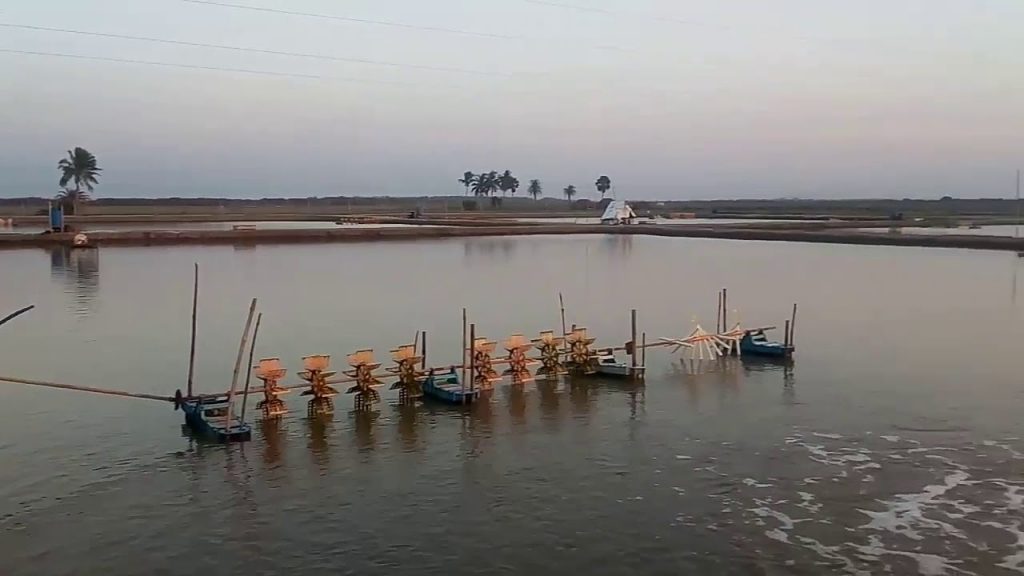Kendrapara: The Orissa High Court has directed the district administration to pull down the illegal prawn cultivation in and around Bhitarkanika National Park as the toxic effluents discharged by the gheries are destroying the biodiversity in the wetland as well as marine life.
The high court has directed to identify the prawn gheries through a drone survey and demolish them.
However, it is not an easy task as prawn cultivation has become the mainstay of people with over 10,000 people dependent on the gheries for their livelihood. Moreover, government incentives and huge profit margins are luring the local residents and outsiders to the business due to which prawn gheries have mushroomed in seaside areas of the district.
The easy availability of seawater in this coastal district is also helping them in trade. This has led them to turn away from freshwater fish cultivation and take up prawn cultivation.
The claim can be ascertained from the fact that Odisha has made remarkable achievements in export of saline fish and prawn. The export of saline fish has increased 747 per cent during last 10 years. The state exported 11,460 MT of saline fish in 2011-12 financial year but it increased to whopping 97,125 MT in 2021-12 financial year. Earlier, fish cultivation was being done only on 5,860 hectare of land but it has now increased to 17,780 hectare.
Moreover, the government is also encouraging the women self-help groups (SHGs), local fishermen, cooperative societies, women cooperative workers and educated youths to take up the cultivation of saline fish and prawn for a better livelihood.
This has only encouraged the fish farmers to take prawn cultivation instead of freshwater fish. According to an estimate, the prawn gheries in the district are spread over 15,000 hectare of land.
However, this has posed serious threat to the biodiversity of Bhitarkanika wetland. Environmentalists Hemant Kumar Rout, Ashok Kumar Swain, Prabhu Prasad Mohapatra alleged that the toxic effluents discharged from the prawn gheries are destroying the wetland ecosystem.
Chemical effluents discharged from the gheries get mixed in seawater and kill scores of marine lives destroying their habitats. The green cover in Bhitarkanika is also threatened putting at risk the survival of scores of wildlife in the wetland.
To save the Bhitarkanika the government should act tough and close down the prawn gheries running on it support, they said. This is because the incentives, that the prawn gheries running on government support receive, prompt others to put up illegal prawn gheries.
Amar Kumar Pradhan, president of Maa Matia Mangala Chingudi Chasi Mahasangha said that the government has framed many self-employment schemes out of which prawn cultivation is popular because it is a profitable venture.
It has provided employment to over 10,000 youths and is being done on the basis of government guidelines. He rejected that prawn cultivation is being done near the river, government or forest land. He said that terming all the gheries as illegal and demolishing them will hinder the economic growth of the district.
When contacted, district fisheries extension officer Mamata Mohapatra said all the gheries in the district are not illegal as some farmers and women SHGs have been given permission for the cultivation. She said that hundreds have filed applications for grant of permission but they are yet to be given approval. Meanwhile, the district Collector has directed all concerned tehsildars to identify the illegal gheries and demolish them, she added.
PNN
